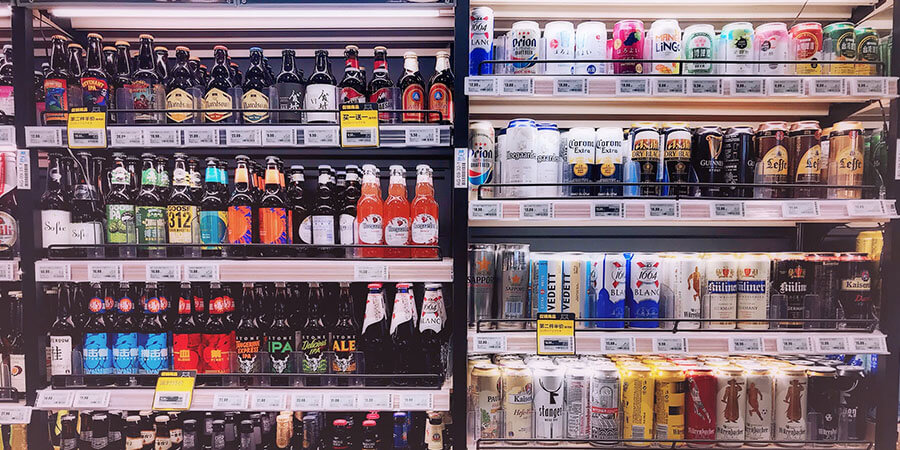Commercial Refrigeration Routine Maintenance and Best Practices

Your commercial refrigerator may be one of the most important pieces of equipment in your whole kitchen because it keeps cool the food you need to create all of your dishes. A breakdown or maintenance issue in your commercial refrigerator means that you will need to fix it quickly, or the slowdown will cause a loss of customers and profits. The best thing you can do is to maintain your commercial refrigerators well, keeping them clean and following the maintenance requirements set by their respective manufacturers. Failure to do so on your part will make your commercial restaurant equipment be potentially at risk of not being covered by warranty, and being rendered unusable, depending on the severity of the issue. You only need to follow a few guidelines to ensure that you are treating your equipment correctly, whether you own a brand new True T-49-HC refrigerator, Hoshizaki R1A-FS refrigerator, or another commercial refrigerator that has been in your kitchen for years.
Note: Before performing any maintenance or cleaning on your unit, be sure you read its manual, as the manufacturer may require you to avoid using certain solutions, and you may void your warranty if you don’t heed their instructions. It’s best to read the manual several times during the life of your commercial refrigerator so you’re always up to date on the mechanics and performance requirements of your equipment. Any cleaning you will do must be done after you unplug the machine!
Maintenance
To keep your commercial refrigerators running in perfect shape, you will need to schedule regular maintenance checks. On each check, make sure the door is sealing correctly, and that other functions, such as the condenser, are running appropriately. You can also turn to a certified commercial refrigeration repair service to make sure the equipment is thoroughly checked for any issues or concerns. Having regular maintenance on your commercial refrigerator will save you headaches and money down the line.
Cleaning the Interior of Your Commercial Refrigerator
First, read the manual of your particular brand to see what cleaning methods they recommend. Take care you aren’t using any of the following: steel wool, bleaches, and caustic chemicals, as these can damage your commercial refrigerator's finish, and may leave a powerful chemical smell behind. You certainly don’t want that smell present in your customers’ food, do you? You can use warm water and a mild soap detergent to freshen and clean any debris, spills, or mess in the refrigerator. Take care to remove crumbs as well, as they may clog any of the ports, blades, and other processes of the commercial refrigerator. Don’t neglect your shelves either, because those need to be cleaned up weekly, so spills don’t have time to harden and be hard to remove later on. After you clean up the spills, clean the gaskets (following the instructions in the manufacturer’s manual) to make sure they continue to seal correctly; failure to have a good seal may result in your commercial refrigerator won’t cool properly.
Mechanics and Processes
Your commercial refrigerator has a lot of moving parts, including condensers, motors, fans, and blades. Some of these parts may need to be cleaned by you weekly or monthly, depending on the frequency of use and the manufacturer’s guidelines. You can clean the parts such as a coil with a recommended commercial coil cleaner to properly remove any buildup that may be on the coil and could potentially slow down any processes. You will be able to locate the coil by checking the manual of your model. In many commercial refrigerators, the coil is easily accessible for quick cleaning so you don’t have to strain to find it. The fan can generally be cleaned with a soft cloth to remove dust and debris, but if you have an extremely dirty fan, consult with your manufacturer.
Replacing Parts in Your Commercial Refrigerator
If you need to replace a part in your commercial refrigerator such as a lightbulb or a condenser in another model, then you should only use parts from suppliers recommended by your equipment’s manufacturer. Again you could void your warranty if you use non-covered parts, but you also may cost yourself a lot more later on if the parts are faulty or aren’t made to properly run your machine. The equipment’s manual will often include recommended suppliers for replacement parts, or you can buy the replacement parts directly from the manufacturer. Industry leaders such as True, which makes the highly-regarded T-49, advise that only qualified service experts in commercial refrigeration should replace the parts in a commercial refrigerator.
With any refrigerator purchase comes a commitment you must make for its continued excellence. You are responsible for the care and maintenance of your commercial refrigerator, and by following these simple guidelines, you can get plenty of years out of your equipment. You may contact your model’s manufacturer to see if they have any plans that could help with the service and performance of your equipment. Don’t forget to instruct your employees on the proper care and maintenance of your refrigerator.
Share This!